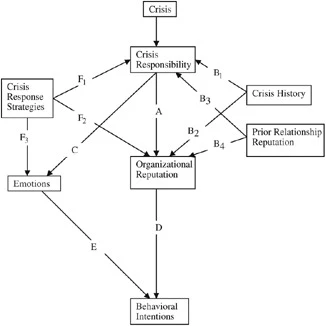In crises, acting in a quick, transparent and empathic manner is important. But really good communicators also have scientific findings in mind when it comes to their crisis communications strategy, says Jakob Baugirdis, Partner and Head of Corporate Reputation..
In some way, it's understandable. And also correct. In crises, communicators rely on tried-and-tested basic rules. Act promptly, create transparency, always remain honest. The list is long. After all, in what situation is the pressure on communicators greater? Less time to act? And so many eyes on us?
Working through checklists provides peace of mind. Please don't get me wrong, I think this is good. Checklists are part of every crisis manual we develop. They are worth their weight in gold, especially for an initial communicative response.
And certain basic rules such as honesty, empathy and speed will always apply in crisis situations. This simply has to do with psychology. For stakeholders, crises of a company that is important to them mean one thing first: uncertainty. And our job as communicators is to reduce this uncertainty.
It is also obvious that good and efficient crisis communication has to do with experience. Anyone who has been through situations before can make the right decisions more quickly when it counts. I, too, always rely on my gut feeling in critical situations.
And yet, for me, the framework of crisis communication is evolving faster than any other discipline. Nowhere is communication so fast today. Nowhere are we dealing with so many players. Nowhere with so many opinions. Press releases have long since ceased to be the primary communication channel for any of our customers with a critical technical infrastructure, especially when it comes down to it. Establishing your own Twitter channel as a "trusted source" in advance is top priority.
But even if speed and channels change. For me, one thing will still be the same 20 years from now: What messages companies need to communicate to minimize any reputational harm in crises.
Practice needs to use science
And this is where the complete opposite of our gut feeling provides the answer. Scientific research on crisis communication. And this is based on psychology, too: the so-called attribution research. Or to put it simply: How do stakeholders decide what they think is the cause of a crisis? And then, in the next step, who they hold responsible. The company itself? A natural disaster? Or special circumstances?

Interrelations in the Situational Crisis Communication Theory (SCCT), model of Cooms and Holladay (2007).
From a communications perspective, the key question is: To what extent do stakeholders hold the company itself responsible for a crisis? Because the more they do so, the greater the potential damage to the company's reputation. Want an example? Not difficult at the moment, just look at Wirecard. Anyone who is suspected of falsifying financial statements will take the rap for it.
And this is exactly where communicators need to start. If stakeholders ascribe full responsibility for a crisis to the company, the latter must also assume full responsibility - at least from the point of view of pure reputation management. The aim is to minimize the gap between the responsibility attributed to a company and the very responsibility that a company also assumes for a crisis.
The appropriate communications strategy according to the Situational Crisis Communication Theory von Coombs und Holladay is in this case: Full Apology. Taking complete responsibility. A bit simple, you think? Right. In reality, of course, that doesn't work without including legal implications in every decision. And it never should. It's not for nothing that all trades sit together in the crisis team.
Of course, the system also works the other way around - with various gradations: If stakeholders clearly place responsibility for a tanker accident with a terrorist attack, for example, it makes little sense to assume full responsibility for this. After all, why should a company assume responsibility for something for which its key stakeholders do not hold it accountable at all?
This very question not only shows how closely communications and science must work together. But it also shows one thing above all: that many communicators make a fundamental error in thinking during crises.
Crisis communication strategies need a change of perspective
In crises, we are sometimes afraid. And so, we reflexively adopt an internal perspective. But this leads to a problem: We don't care what our stakeholders think of us in a crisis - but rather how we can build up the strongest possible protective shield as quickly as possible.
But a company's reputation originates precisely there: with its stakeholders. So please, dear communicators: Before you think about which communication strategy you'll drive in a crisis – analyze exactly what your stakeholders are saying about you. Because reputation can only be protected where it ultimately originates: Directly with your stakeholders.
All this may sound complex. And yes, it is. But between you and me, what topic should we be dealing with in such great depth if not the very topic that ultimately has the most at stake: The entire existence of a company.
More information on the SCCT and other crisis communication strategies can be found here


